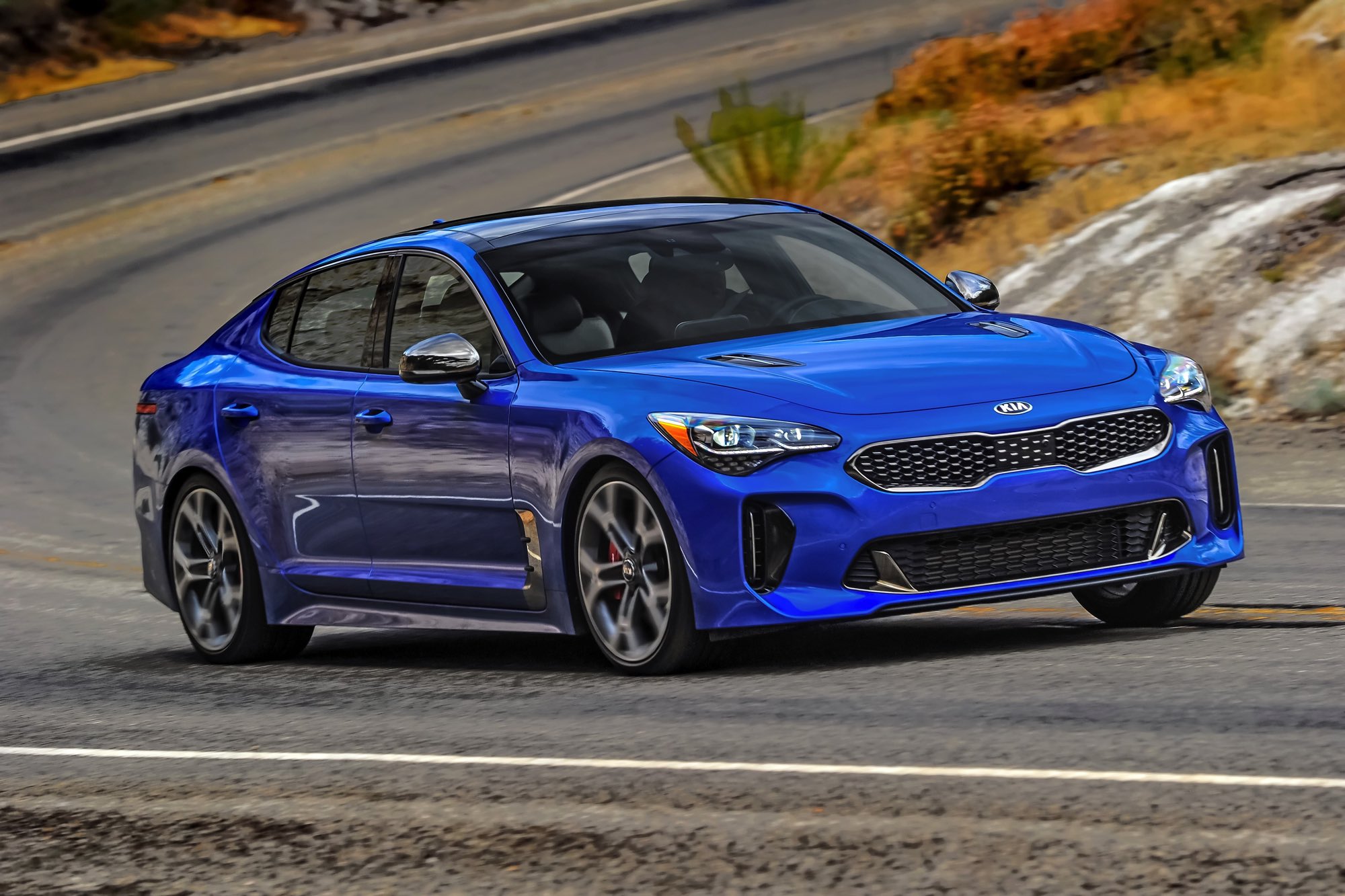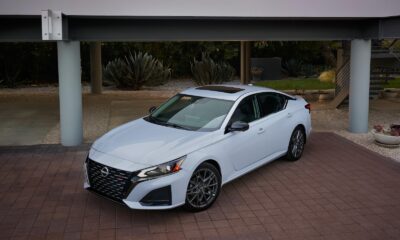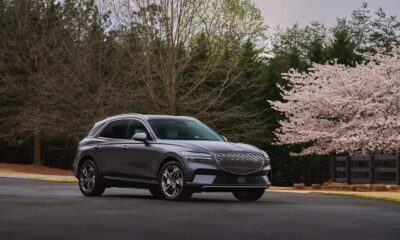Car Reviews
Kia’s Stinger – At $35K, A Proportional Response
You’ve heard it before, but it’s worth repeating: the Koreans are coming. Of course they’ve been here, formally launching – if, in retrospect, ‘launch’ is the word – Hyundai’s modest Excel in the States some thirty years ago. And while the first decade for Hyundai and, later, Kia, was a roller coaster ride, with more downs than ups, the last ten years have generated vastly improved products, and in the guise of Hyundai’s Genesis brand and Kia’s Stinger, a couple of nice surprises.
The Stinger, notably, got the fan boys swooning with its long, seductive media tease – in V6-equipped, GT guise – before its showroom debut. Boasting a twin-turbo V6 and 365 horsepower, this was the $50K alternative to BMW’s mighty M3 or Benz’s C-Class AMG. And while those are ambitious role models for any young brand, the Stinger GT made a compelling argument, even for those (like myself) that can’t yet envision spending $50K in a Kia showroom. But as noted in our look at the Stinger GT this summer, the 4-cylinder Stinger – offered in the low $30s with 255 hp and 260 lb-ft of torque – is one very viable alternative to the millions of Accords and Camrys sitting at that same price point. So I drove one.
In the walk up to the ‘base’ Stinger there’s little to differentiate it from the more expressive/expensive GT, a good thing for someone spending $35K – less so for someone spending $50K. We like the Stinger’s 18-inch rubber, while wishing the Kia occupied a footprint closer to a 3 Series than a 5 Series; this is one long piece of sheetmetal, stretching 190 inches on a 114.4-inch wheelbase. And with a height of 55 inches, the Kia’s length and height deliver a stunning silhouette, along with just enough greenhouse to make outward visibility a distinct possibility.
Despite referenced on Kia’s website as a sedan, the Stinger – regardless of what sits under the hood – is a hatchback, and the hatch is a big ‘un, easily able to swallow your bike or snowboards. Kia rates cargo capacity at just over 23 cubic feet, but that’s with the backseat up – and the backseat folds. I’m not sure I’d sleep back there, but I have an adventure-oriented son-in-law that would crash under the hatch faster than you can say ‘Yeti cooler’.
Inside, in our test vehicle’s $37K (with AWD) window sticker the emphasis is on comfort and functionality and not – notably – soft surfaces or lavish detailing. Plastics are hard, but not brittle, while the perforated leather seating provides what you hope it would – comfortable seating. Color choices, both exterior and interior, are limited – and while subjectively the Micro Blue exterior on our test Stinger was younger than my psychographic, you shouldn’t have a problem; everyone’s is younger than my psychographic.
Behind the wheel, the 255 horses propel the Stinger’s 3,900 pounds (with all-wheel drive) quite nicely. And since that weight is almost 300 pounds lighter than the V6-equipped Stinger GT, you can correctly assume the 4-cylinder is lighter in feel, albeit slower in acceleration and top end. We’d liken it to the difference between the late George H.W. Bush and #43, George W. Bush: the base 4-cylinder is a little kinder, a little gentler and – obviously – a little slower, but not so slow as to not be capable or entertaining.
If I was a product planner on the Kia team, I’d ditch the fake plastic intakes on the Stinger’s hood, give the 4-cylinder platform the same braking and handling tweaks that the GT receives (but keep the 18-inch rubber), and imbue the 2.0 liter four with a real 300 horsepower. Make sure the rear-wheel drive window sticker stays under $35K, and then do something decidedly different with a car platform: advertise it.






























